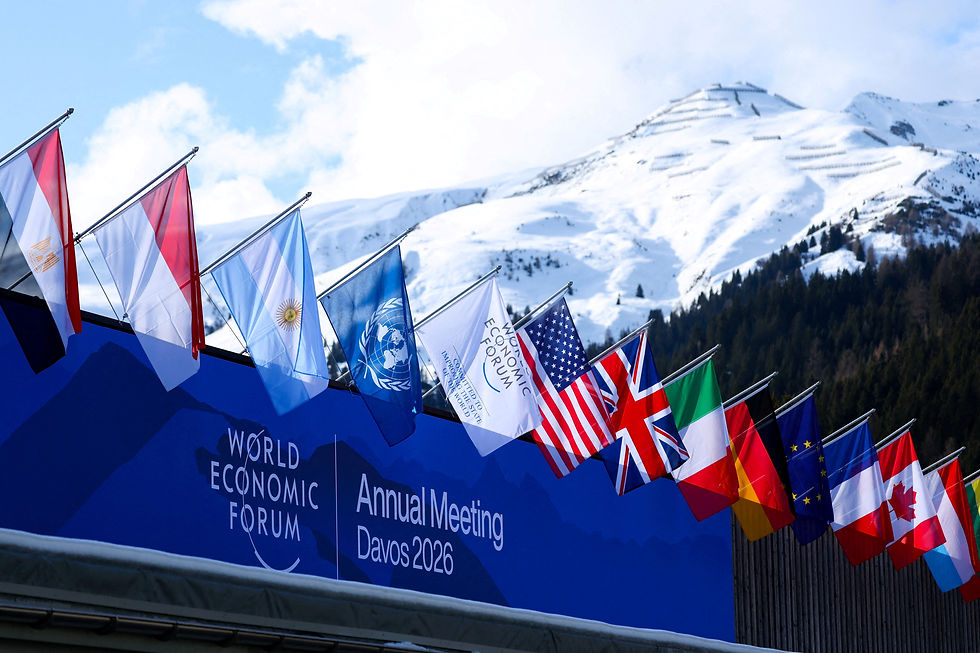The Future of Sustainable Packaging & Lessons for Corporate-Startup Collaboration
- Apr 30, 2024
- 3 min read
Updated: Oct 21, 2025

Introduction: Transforming Packaging for a Sustainable Future
In today's dynamic market, where consumer awareness and regulatory pressures are reshaping industries, the packaging sector is experiencing a pivotal transformation. The recent insights from the AD Stretch Demo Day, which I had the pleasure of attending, offer a unique lens through which to view the evolving landscape of packaging technology. This article, inspired by discussions with industry leaders Nestlé’s Maarit Rein, Mckinsey’s Jon Haag, Emerald VC’s Fredric Petit, aims to equip venture capital investors and startups in the climate tech and packaging sectors with actionable insights and strategies for success.
Emerging Trends Revolutionizing the Packaging Industry
Regulatory Evolution: Stringent environmental regulations from Europe and North America are setting precedents likely to be adopted globally within five years, pushing companies towards sustainable packaging solutions.
Consumer Demands: An increasingly informed consumer base demands transparency, pushing brands to rethink their packaging strategies with sustainability at the core.
Corporate Commitments: Many corporates have set ambitious sustainability targets, leading to an uptick in collaborations between corporates and innovative startups, driving the development of groundbreaking packaging solutions.
Innovation Hotspots in Packaging
Materials Revolution: Transitioning from fossil-based to bio-based materials heralds a new era of eco-friendly packaging.
Functionality Enhancements: Emerging processes like de-inking and de-bonding are tackling the challenges of circularity and reuse.
End-of-Life Rethink: The shift towards designing packaging with reuse prioritized over recycling.
Technological Integration: Smart, connected packaging and advanced waste management systems are redefining industry standards.
Business Model Evolution: Disruptive new approaches challenge traditional views of packaging's role in the supply chain.
General Lessons for Fostering Effective Corporate-Startup Partnerships
Zooming out from the packaging industry, getting to net-zero in our fossil fuel based economy means corporates are not only reevaluating their partnerships throughout the supply chain but are also joining forces with startups and other brands in consortia to spearhead sustainable solutions. Below highlight some strategies to ensure successful collaboration between corporates and startups.
For Corporates Seeking Collaboration with Startups
For established brands, the adoption of sustainable innovations is confronted with challenges of balancing costs, meeting sustainability commitments, whilst maintaining consumer centricity. Corporates must be willing to pivot strategies, embrace risk, and align closely with startup teams to share timelines and objectives.
Corporates engaging with startups show varied levels of success and commitment:
Engaged & Performing: Corporates actively collaborate with startups, driving innovation and market introductions. Effective collaboration involves a balance of entrepreneurship, careful planning, aligning with stakeholders internally and along the value chain and focusing on essential project requirements.
Engaged, but Challenged: Some corporates engage with startups but face internal process issues that hinder project success. Challenges lie in broken internal communication and process, and failure to access potential downstream rollout barriers.
Limited Engagement: Relying mainly on internal resources, these companies show minimal openness to external innovations.
For Startups Seeking Collaboration with Corporates
Startups face distinctive challenges when attempting to partner with large corporations. Securing market access is often more daunting than developing the product itself. For startups looking to break through:
Align Expectations: Clear communication about outcomes, timelines, and processes is essential. Establish shared goals and understandings from the outset to ensure both parties are moving in the same direction.
Understand Corporate Dynamics: The bureaucratic nature of large corporations can be a significant barrier. It's crucial to be patient and prepared for a lengthy process, from signing NDAs to undergoing product validation tests. Anticipate slow movement and plan accordingly.
Build Solid Relationships: Relationship management is key. Maintain consistent and open communication with your corporate partners. Set realistic expectations and be ready to adapt as the partnership evolves.
Navigate the Process Step by Step: Approach the collaboration methodically. Understand that after initial approval, there are usually several more stages of validation before a full rollout. Each phase will require patience and persistence.
By addressing these aspects directly, startups can better prepare for and navigate the complexities of collaborating with larger corporate entities, thereby improving their chances of successful partnerships.
Conclusion: Innovation Spotlight from AD Stretch Demo Day
The AD Stretch Demo Day highlighted several pioneering startups who have worked over the past year with various teams at Avery Dennison to advance their businesses. Among the innovative solutions showcased, notable startups like Peafowl Plasmonics AB, Puro Renewables, Inc. (currently fundraising*), BeFC Bioenzymatic Fuel Cells , and Moree are leading the way in packaging innovation.
These startups not only represent the cutting edge of packaging innovation but also exemplify the potential for successful corporate-startup collaboration in driving sustainable change in the industry.
Engage and Share Your Insights: We are eager to hear your perspectives and experiences in the sustainable packaging landscape. Are you a startup navigating the complexities of corporate collaboration? Or a corporate entity exploring innovative partnerships? Share your insights, challenges, and successes in the comments below. Let's foster a community of innovation and collaboration.






